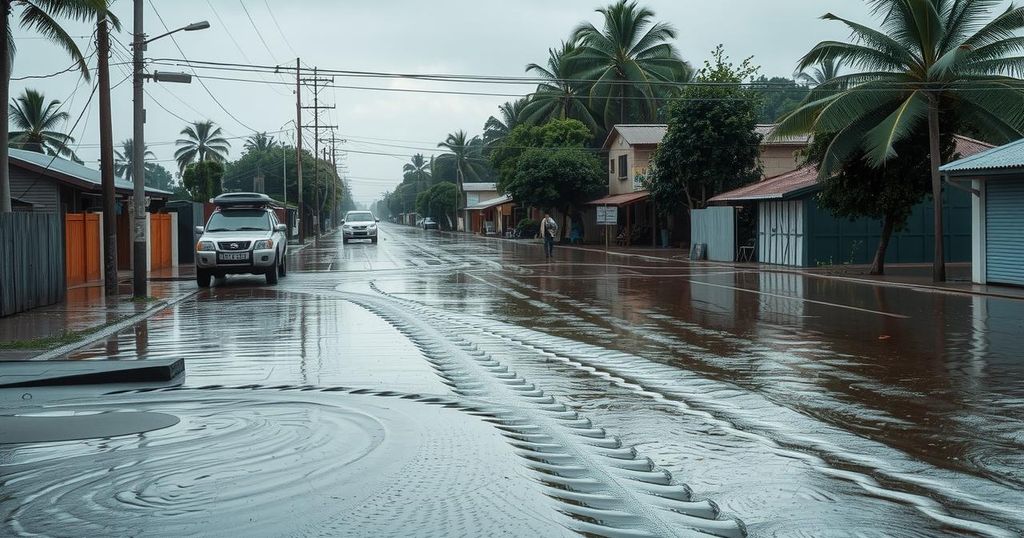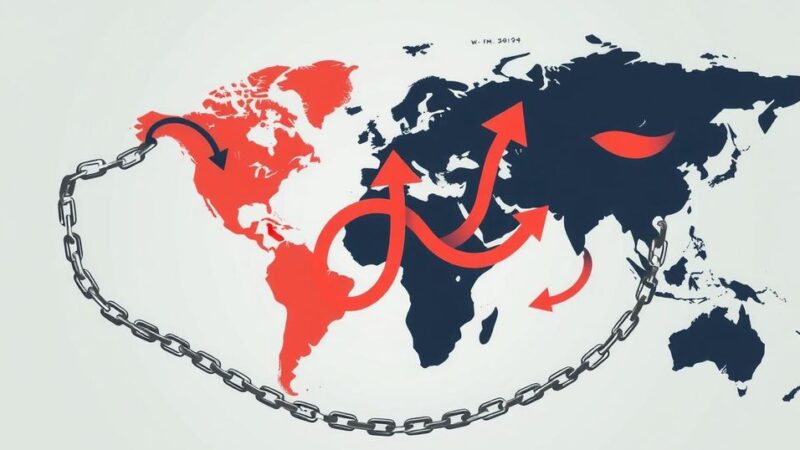Cyclone Chido has devastated Mozambique, raising the death toll to 75 in Cabo Delgado province, which was already suffering from an insurgency. The cyclone significantly damaged infrastructure and complicated the situation for many displaced people. Rescue efforts continue amidst ongoing humanitarian challenges as the country faces the prospect of more severe weather.
The death toll from Cyclone Chido in Mozambique has surged to 75, nearly doubling previous estimates, according to official statements released by the government. The cyclone struck Cabo Delgado province, an area already reeling from a protracted insurgency linked to the Islamic State, displacing hundreds of thousands. Rescue teams have faced significant challenges reaching the hardest-hit areas, leading to a rise in casualties as reports of destruction emerged from remote locations.
The storm impacted Cabo Delgado severely, resulting in 69 fatalities and injuring about 740 individuals as confirmed by Mozambique’s National Institute for Natural Disasters. Many casualties became known as emergency responders navigated devastated landscapes where roads had been obliterated. In Mecufi district, total devastation was observed, with infrastructure loss reported extensively. “What you see is utter destruction,” remarked Isadora Zoni, a reporting officer from the United Nations’ refugee agency, after observing the aftermath in the worst-affected regions.
Mozambique has been identified as one of the most impoverished nations, suffering hugely from climate change effects, with storms being a common threat in the southern Indian Ocean. Cyclone Chido unleashed winds reaching 115 miles per hour, equivalent to a Category 3 hurricane. The aftermath depicted collapsed mud and wooden structures, uprooted healthcare facilities, and schools reduced to debris. According to Zoni, this calamity has placed additional strains on individuals who have already been displaced, as many are living in precarious conditions such as tents.
The storm’s devastating path also included Mayotte, where at least 31 deaths have been reported, and it has the potential to launch an intense rainy season fraught with cyclones and flooding. Historical patterns indicate previous storms like Tropical Cyclone Freddy and Cyclone Gombe led to significant losses in Mozambique, affecting thousands of residents and heightening vulnerability to extreme weather events. The ongoing need for humanitarian assistance continues to persist within this crisis context.
Cyclone Chido struck Mozambique’s Cabo Delgado province, already afflicted by a yearslong insurgency that caused mass displacements. As one of the most severely impacted countries by climate change, Mozambique faces frequent cyclones and severe weather patterns. The recent cyclone not only caused extensive loss of life but also further displaced communities who were already living in precarious situations due to previous conflicts. The country’s vulnerability to such disasters has been recognized internationally, complicating the humanitarian situation.
The situation in Mozambique following Cyclone Chido underscores the dual impact of natural disasters compounded by ongoing conflicts. With the death toll now being reported at 75 and extensive infrastructure damage noted, the region’s challenges are deepening. The need for humanitarian support and disaster preparedness is critical as the effects of climate change continue to threaten vulnerable populations in Mozambique.
Original Source: www.nytimes.com







